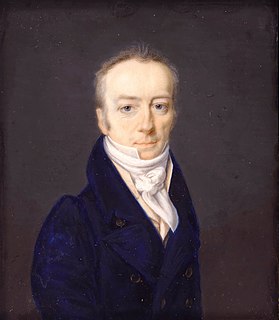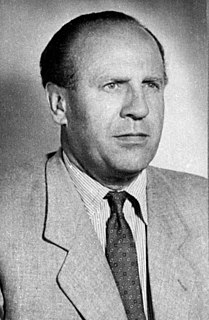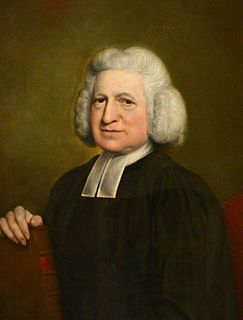A Quote by Oswald Spengler
We are born into this time and must bravely follow the path to the destined end. There is no other way. Our duty is to hold on to the lost position, without hope, without rescue, like that Roman soldier whose bones were found in front of a door in Pompeii, who, during the eruption of Vesuvius, died at his post because they forgot to relieve him. That is greatness. That is what it means to be a thoroughbred. The honorable end is the one thing that can not be taken from a man.
Quote Topics
Because
Bones
Born
Bravely
Destined
Died
Door
Duty
End
Eruption
Follow
Forgot
Found
Front
Greatness
Him
His
Hold
Honorable
Hope
Like
Lost
Man
Means
Must
One Thing
Other
Our
Path
Pompeii
Position
Post
Relieve
Rescue
Roman
Soldier
Taken
The One Thing
Thing
Thoroughbred
Time
Way
Were
Whose
Without
Without Hope
Related Quotes
He was a foe without hate; a friend without treachery; a soldier without cruelty; a victor without oppression, and a victim without murmuring. He was a public officer without vices; a private citizen without wrong; a neighbor without reproach; a Christian without hypocrisy, and a man without guile. He was a Caesar, without his ambition; Frederick, without his tyranny; Napoleon, without his selfishness, and Washington, without his reward.
It is dangerous to explain too clearly to man how like he is to the animals without pointing out his greatness. It is also dangerous to make too much of his greatness without his vileness. It is still more dangerous to leave him in ignorance of both, but it is most valuable to represent both to him. Man must not be allowed to believe that he is equal either to animals or to angels, nor to be unaware of either, but he must know both.
Every subject's duty is the King's; but every subject's soul is his own. Therefore, should every soldier in the wars do as every sick man in his bed, wash every mote out of his conscience; and dying so, death is to him advantage; or not dying, the time was blessedly lost wherein such preparation was gained; and in him that escapes, it were no sin to think that, making God so free an offer, He let him outlive the day to see His greatness and to teach others how they should prepare.
It is of dangerous consequence to represent to man how near he is to the level of beasts, without showing him at the same time his greatness. It is likewise dangerous to let him see his greatness without his meanness. It is more dangerous yet to leave him ignorant of either; but very beneficial that he should be made sensible of both.
The person who experiences greatness must have a feeling for the myth he is in. He must reflect what is projected upon him. And he must have a strong sense of the sardonic. This is what uncouples him from belief in his own pretensions. The sardonic is all that permits him to move within himself. Without this quality, even occasional greatness will destroy a man.
He looked at the little maiden, and she looked at him; and he felt that he was melting away, but he still managed to keep himself erect, shouldering his gun bravely. A door was suddenly opened, the draught caught the little dancer and she fluttered like a sylph, straight into the fire, to the soldier, blazed up and was gone! By this time the soldier was reduced to a mere lump, and when the maid took away the ashes next morning she found him, in the shape of a small tin heart. All that was left of the dancer was her spangle, and that was burnt as black as a coal.
Some people will follow their minds without listening to their hearts, and others will follow their hearts without listening to their minds. This is why reason exists, for there to be balance between the heart and mind. We were not meant to follow the mind and ignore the heart. Instead, we were meant to follow the heart over the mind, but without completely abandoning logic. The middle way is the preferred way, and this path simply means to allow your heart to drive you, but do not forget to balance reason with your conscience.
The problem comes up because we ask the question in the wrong way. We supposed that solids were one thing and space quite another, or just nothing whatever. Then it appeared that space was no mere nothing, because solids couldn't do without it. But the mistake in the beginning was to think of solids and space as two different things, instead of as two aspects of the same thing. The point is that they are different but inseparable, like the front end and the rear end of a cat. Cut them apart, and the cat dies.
Cultivate your garden? Do not depend upon teachers to educate you ? follow your own bent, pursue your curiosity bravely, express yourself, make your own harmony? In the end, education, like happiness, is individual, and must come to us from life and from ourselves. There is no way; each pilgrim must make his own path. "Happiness," said Chamfort, "is not easily won; it is hard to find it in ourselves, and impossible to find it elsewhere.
People forgot that industry is not an end in itself, but should be only a means to insure to man his material subsistence and to make accessible to him the blessings of a higher intellectual culture. Where industry is everything and man is nothing begins the realm of a ruthless economic despotism whose workings are no less disastrous than those of any political despotism.





































